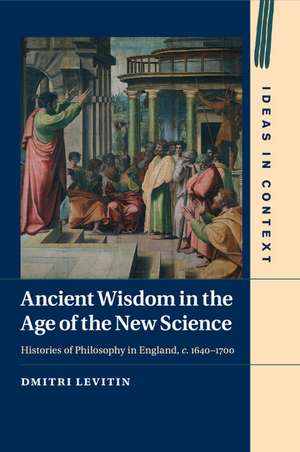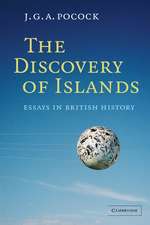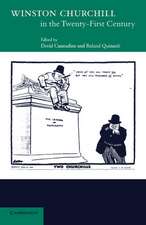Ancient Wisdom in the Age of the New Science: Histories of Philosophy in England, c. 1640–1700: Ideas in Context, cartea 113
Autor Dmitri Levitinen Limba Engleză Paperback – 26 iul 2017
| Toate formatele și edițiile | Preț | Express |
|---|---|---|
| Paperback (1) | 278.62 lei 43-57 zile | |
| Cambridge University Press – 26 iul 2017 | 278.62 lei 43-57 zile | |
| Hardback (1) | 683.33 lei 43-57 zile | |
| Cambridge University Press – 14 sep 2015 | 683.33 lei 43-57 zile |
Din seria Ideas in Context
-
 Preț: 200.64 lei
Preț: 200.64 lei -
 Preț: 200.28 lei
Preț: 200.28 lei - 9%
 Preț: 592.59 lei
Preț: 592.59 lei -
 Preț: 200.38 lei
Preț: 200.38 lei -
 Preț: 200.42 lei
Preț: 200.42 lei -
 Preț: 178.15 lei
Preț: 178.15 lei -
 Preț: 230.08 lei
Preț: 230.08 lei -
 Preț: 240.27 lei
Preț: 240.27 lei - 9%
 Preț: 627.28 lei
Preț: 627.28 lei -
 Preț: 224.34 lei
Preț: 224.34 lei - 11%
 Preț: 695.06 lei
Preț: 695.06 lei - 11%
 Preț: 693.36 lei
Preț: 693.36 lei - 9%
 Preț: 626.79 lei
Preț: 626.79 lei - 9%
 Preț: 626.37 lei
Preț: 626.37 lei -
 Preț: 169.70 lei
Preț: 169.70 lei - 11%
 Preț: 626.38 lei
Preț: 626.38 lei -
 Preț: 246.32 lei
Preț: 246.32 lei - 8%
 Preț: 530.33 lei
Preț: 530.33 lei - 27%
 Preț: 648.35 lei
Preț: 648.35 lei - 9%
 Preț: 592.06 lei
Preț: 592.06 lei -
 Preț: 186.95 lei
Preț: 186.95 lei -
 Preț: 188.70 lei
Preț: 188.70 lei -
 Preț: 192.99 lei
Preț: 192.99 lei -
 Preț: 160.82 lei
Preț: 160.82 lei - 11%
 Preț: 583.02 lei
Preț: 583.02 lei -
 Preț: 200.74 lei
Preț: 200.74 lei - 11%
 Preț: 585.25 lei
Preț: 585.25 lei -
 Preț: 276.77 lei
Preț: 276.77 lei -
 Preț: 185.17 lei
Preț: 185.17 lei -
 Preț: 178.45 lei
Preț: 178.45 lei - 11%
 Preț: 583.56 lei
Preț: 583.56 lei -
 Preț: 179.68 lei
Preț: 179.68 lei - 11%
 Preț: 584.90 lei
Preț: 584.90 lei -
 Preț: 375.56 lei
Preț: 375.56 lei -
 Preț: 284.17 lei
Preț: 284.17 lei -
 Preț: 285.54 lei
Preț: 285.54 lei -
 Preț: 298.92 lei
Preț: 298.92 lei -
 Preț: 282.87 lei
Preț: 282.87 lei -
 Preț: 288.04 lei
Preț: 288.04 lei -
 Preț: 284.56 lei
Preț: 284.56 lei - 14%
 Preț: 757.52 lei
Preț: 757.52 lei
Preț: 278.62 lei
Nou
Puncte Express: 418
Preț estimativ în valută:
53.33€ • 57.95$ • 44.83£
53.33€ • 57.95$ • 44.83£
Carte tipărită la comandă
Livrare economică 21 aprilie-05 mai
Preluare comenzi: 021 569.72.76
Specificații
ISBN-13: 9781107513747
ISBN-10: 110751374X
Pagini: 694
Dimensiuni: 153 x 230 x 35 mm
Greutate: 0.92 kg
Editura: Cambridge University Press
Colecția Cambridge University Press
Seria Ideas in Context
Locul publicării:New York, United States
ISBN-10: 110751374X
Pagini: 694
Dimensiuni: 153 x 230 x 35 mm
Greutate: 0.92 kg
Editura: Cambridge University Press
Colecția Cambridge University Press
Seria Ideas in Context
Locul publicării:New York, United States
Cuprins
1. Introduction: histories of philosophy between 'Renaissance' and 'Enlightenment'; 2. Ancient wisdom I: the wisdom of the East: Zoroaster, astronomy and the Chaldaeans, from Thomas Stanley to Thomas Hyde; 3. Ancient wisdom II: Moses the Egyptian?; 4. Histories of natural philosophy I. Histories of method; 5. Histories of natural philosophy II. Histories of doctrine: matter theory and animating principles; 6. Philosophy in the early church; 7. Conclusion.
Recenzii
'Dmitri Levitin's [book] has prodigious virtuosity. It argues that historians of ideas are often too remote from institutional history, and provides a vivid, enriching celebration of the continuing vitality in seventeenth-century England of a trans-European culture of scholarly humanism that radiated beyond scholarly communities. There is a far-reaching discussion of dogmatism, learned authority and experimentalism. Levitin identifies the recession of the ideal of the philosopher-theologian as the greatest transformation of seventeenth-century English intellectual culture. He has an exultant joy in his sources, but never loses mastery of them. His avid glee in reading manuscripts and rare treatises, the insatiability of his learning, are enthralling. I recommend the witty mischief hidden in his index. Ancient Wisdom makes most books I have read this year look like bankrupt stock.' Richard Davenport-Hines, 'Books of the Year 2016,' The Times Literary Supplement
'Levitin's book is a remarkable achievement as intellectual history precisely for taking this simple claim so seriously as to recover the historical basis on which the scholarly argumentation of the period rested. In so doing, he charts an entirely new landscape of intellectual debate and exchange and undercuts received wisdoms about the period. Taking a truism seriously, then, leads in fact to a revolutionary change in our historical understanding.' Robert J. Mayhew, Journal of Historical Geography
'This is a highly important, scholarly, and provocative book. It is clearly written and impressively researched, drawing on a vast range of manuscript and printed primary sources, as well as on modern works about early modern intellectual history.' Johann P. Sommerville, Renaissance Quarterly
'In this impressive book, Dmitri Levitin examines the ways in which seventeenth-century English theologians, clerics, philosophers, scholars, and scientists looked at Egyptian, Hebrew, Greek, and Roman thought … this tour de force blew me away.' Dirk van Miert, Isis
'This book offers an impressive revisionist analysis of the way in which late humanist erudition, instead of aiming at a facile and fruitless accumulation of historical facts, acted as an inspiring and innovative force … I have greatly appreciated to see that the debates and discussions in England cannot be properly studied or contextualized without also considering influences from the Continent … [and] appreciate the profound knowledge that has been expounded in this monumental study.' Henk Nellen, History of Humanities
'The author set himself a daunting task … and it is not the least remarkable thing about this thoroughly excellent book that he leaves the reader in no doubt of his complete mastery of the sources, primary and secondary, and of his judicious sure-footing in what we can safely infer from them. The result is a tour de force of historical scholarship and it is hard to believe there is anyone working in the early modern period who will not learn something valuable from reading this book.' John Henry, American Historical Review
'This well-researched and intelligently written book has all the qualities to become a classic in the history of historical scholarship and to appeal to experts in the field for many years to come.' Diego Lucci, English Historical Review
'Ancient Wisdom in the Age of the New Science is the result of extraordinarily thorough research and a deep understanding of the philosophical and scientific debates of the seventeenth century, not only in England but throughout Europe. It is encyclopaedic in its scope and will be essential for anyone who wishes to study the countless figures whom Levitin has rescued from oblivion and who, each in his own way, contributed to an advance to which we are all still indebted.' Alastair Hamilton, The Times Literary Supplement
'Dmitri Levitin's expansive study of seventeenth-century historical scholarship is itself a deeply impressive scholarly work. It discusses a wide range of early‐modern debates about the development and significance of ancient philosophy and religion, brings to life the numerous authors who took part in them, and uncovers many interconnections between apparently disparate topics and schools of thought. Much of the innovativeness and pleasure of the book lies in its explorations of particular scholarly enterprises, which in turn rest on prodigious reading, broad learning, and enviable linguistic fluency. At the same time, however, Levitin defends a general thesis about the place of scholarship in seventeenth-century English culture.' Susan James, European Journal of Philosophy
'To the extent that we might be prepared to conceive historiography as a science rather than an art, it is difficult to imagine a more skilful example of it than Ancient Wisdom, which makes most other efforts seem lazy and amateurish by contrast. The result is one of the most important and original books on early modern intellectual history of the past thirty years.' Anthony Ossa-Richardson, Erudition and the Republic of Letters
'Levitin's book is a remarkable achievement as intellectual history precisely for taking this simple claim so seriously as to recover the historical basis on which the scholarly argumentation of the period rested. In so doing, he charts an entirely new landscape of intellectual debate and exchange and undercuts received wisdoms about the period. Taking a truism seriously, then, leads in fact to a revolutionary change in our historical understanding.' Robert J. Mayhew, Journal of Historical Geography
'This is a highly important, scholarly, and provocative book. It is clearly written and impressively researched, drawing on a vast range of manuscript and printed primary sources, as well as on modern works about early modern intellectual history.' Johann P. Sommerville, Renaissance Quarterly
'In this impressive book, Dmitri Levitin examines the ways in which seventeenth-century English theologians, clerics, philosophers, scholars, and scientists looked at Egyptian, Hebrew, Greek, and Roman thought … this tour de force blew me away.' Dirk van Miert, Isis
'This book offers an impressive revisionist analysis of the way in which late humanist erudition, instead of aiming at a facile and fruitless accumulation of historical facts, acted as an inspiring and innovative force … I have greatly appreciated to see that the debates and discussions in England cannot be properly studied or contextualized without also considering influences from the Continent … [and] appreciate the profound knowledge that has been expounded in this monumental study.' Henk Nellen, History of Humanities
'The author set himself a daunting task … and it is not the least remarkable thing about this thoroughly excellent book that he leaves the reader in no doubt of his complete mastery of the sources, primary and secondary, and of his judicious sure-footing in what we can safely infer from them. The result is a tour de force of historical scholarship and it is hard to believe there is anyone working in the early modern period who will not learn something valuable from reading this book.' John Henry, American Historical Review
'This well-researched and intelligently written book has all the qualities to become a classic in the history of historical scholarship and to appeal to experts in the field for many years to come.' Diego Lucci, English Historical Review
'Ancient Wisdom in the Age of the New Science is the result of extraordinarily thorough research and a deep understanding of the philosophical and scientific debates of the seventeenth century, not only in England but throughout Europe. It is encyclopaedic in its scope and will be essential for anyone who wishes to study the countless figures whom Levitin has rescued from oblivion and who, each in his own way, contributed to an advance to which we are all still indebted.' Alastair Hamilton, The Times Literary Supplement
'Dmitri Levitin's expansive study of seventeenth-century historical scholarship is itself a deeply impressive scholarly work. It discusses a wide range of early‐modern debates about the development and significance of ancient philosophy and religion, brings to life the numerous authors who took part in them, and uncovers many interconnections between apparently disparate topics and schools of thought. Much of the innovativeness and pleasure of the book lies in its explorations of particular scholarly enterprises, which in turn rest on prodigious reading, broad learning, and enviable linguistic fluency. At the same time, however, Levitin defends a general thesis about the place of scholarship in seventeenth-century English culture.' Susan James, European Journal of Philosophy
'To the extent that we might be prepared to conceive historiography as a science rather than an art, it is difficult to imagine a more skilful example of it than Ancient Wisdom, which makes most other efforts seem lazy and amateurish by contrast. The result is one of the most important and original books on early modern intellectual history of the past thirty years.' Anthony Ossa-Richardson, Erudition and the Republic of Letters
Notă biografică
Descriere
A groundbreaking, revisionist account of the importance of the history of philosophy to intellectual change - scientific, philosophical and religious - in seventeenth-century England.












